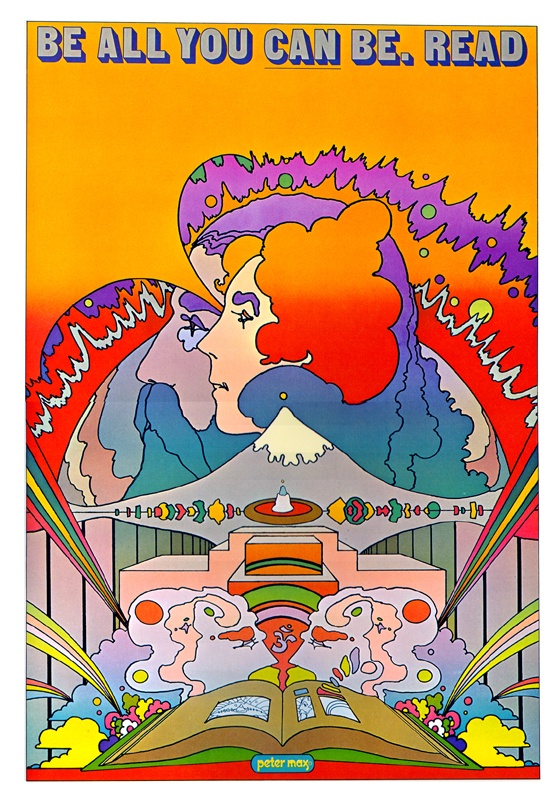Our pal Bobby Tomorrowland recently posted a blog that lamented the passing of a time “when brainy little monographs flew off the shelves at independent bookstores, when information was shared and consumed en masse via organic materials, pressed vegetation, before we turned our economy over to the pixel and set fire to the past.” I know that Bob is a bibliophile: we’ve swapped (and stolen) books from each other for years (Bob lately moved north with my unread copy of The Wind-up Bird Chronicles, exchanging a book of anthropo-mythological film criticism in its place). Still, I was nonetheless a little perturbed by Tomorrowguy’s use of the past-tense verb “was.” Bob clarified his point in the comments thread, writing that “there’s a bittersweet realization that the ledgers, tracts and statements of the future will likely emerge in virtual — not vegetable — form.” Now, sure, “will likely” is still conditional, but it also translates to “probably.” Does Bob really believe that paper books are to be consumed by the “fire of the past”? And where does he locate the sweetness ratio of of this “bittersweet realization”?
Websites and blogs give people the ability to communicate a message to a wide audience without the annoying mediation of an editor or the complications of distributing a physical product. Just as 7″ records, once the currency of underground music, have been displaced by mp3s, zines and “little magazines” are giving way to blogs. American newspapers, in competition with both TV and the internet, increasingly find themselves in economic trouble. Writers of every stripe scramble to praise Amazon’s new e-book reader, the Kindle. Clearly, a new type of literacy based on interfacing with screen media, will certainly be a necessary skill for those seeking “professional” or “white collar” jobs in the West, in the now, and in the future (Greg Ulmer, one of my former professors at the University of Florida has dubbed this skill “electracy“). I will grant Tom Orrowland this much. But his line of logic is specifically teleological, presuming a technologically progressive future, a future shared by everyone. What are the limits of this kind of tomorrowland? Does its horizon extend indefinitely into a promised land, where everyone–that is to say, all members of all cultures, of any imposed tier or hierarchy–share access to this future? Is it not possible to imagine a future of social and technological collapse, where hand-cranked presses must serve where pixels have failed? Or, to be less dramatically eschatological–and to return to Bobby’s original vegetation metaphor –are not handbills and fliers and pamphlets the vital stuff of grassroots movements? To be sure, the internet exists as a profoundly important coeval to the print medium, but is access and exposure to such movements to be only available to those with screen media?Is it so inconceivable people without access to machines could exist fifty or a hundred or two hundred years from now? A thousand? Is electracy in fact an evolutionary threat to literacy? Will hypertext cannibalize pressed vegetation?
Maybe I react this way because I truly love books–not just their contents, but the physical objects themselves, and the thought of a future without books is ugly to me. I love my local independent book store, and I visit it at least twice a month. I love the dizzying smell of a library, the sweet slow-rot of millions of pages. I also have a fondness for several independent presses out there today, publishers who understand that their audiences are genuine bibliophiles. Earlier this month, I gave props to Ursula LeGuin for her insightful recent essay “Staying Awake” in Harper’s. She wrote, and I quoted, and here requote:
The book itself is a curious artifact, not showy in its technology but complex and extremely efficient: a really neat little device, compact, often very pleasant to look at and handle, that can last decades, even centuries. It doesn’t have to be plugged in, activated, or performed by a machine; all it needs is light, a human eye, and a human mind. It is not one of a kind, and it is not ephemeral. It lasts. It is reliable. If a book told you something when you were fifteen, it will tell it to you again when you are fifty, though you may understand it so differently that it seems you’re reading a whole new book.
I couldn’t agree more. Her argument is both simple and profound. To underscore its simplicity, would you be willing to take your laptop or Kindle into the bath with you? How about a sandy beach? Could you imagine poring over a digital version of your favorite Eric Carle book with your young child? What about all the brilliant annotations and ephemeral marginalia doodlers such as myself impose on the text? Again, I’m not presuming that there won’t be water-resistant, beach-friendly, child-friendly, doodler-savvy media interfaces in the future. I can conceive of such a thing. Only I’m dubious. With any number of futuristic fibers available, people still wear organic materials like cotton and leather. We still frame our homes with wood. Many of us prefer to eat real food instead of the edible food-like substances that abound in grocery stores and convenience marts. In short, I think that humans have an affinity and comfort with “naturalistic” products, and I’m not sure if an e-book reader or computer screen will ever be able to replicate the feeling of curling up the couch with a well-loved book stolen from a friend.
Maybe I’m just a Luddite (for the record, I still think my Sony Walkman sounds ten times better than my portable mp3 player). Maybe I’ll be proven wrong, maybe even in just a few short months. Who knows? But I’d rather be cranky and old-fashioned than accept a future without books.


